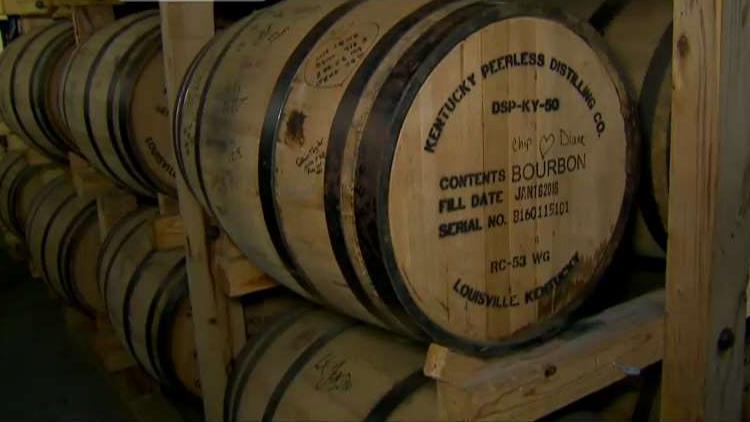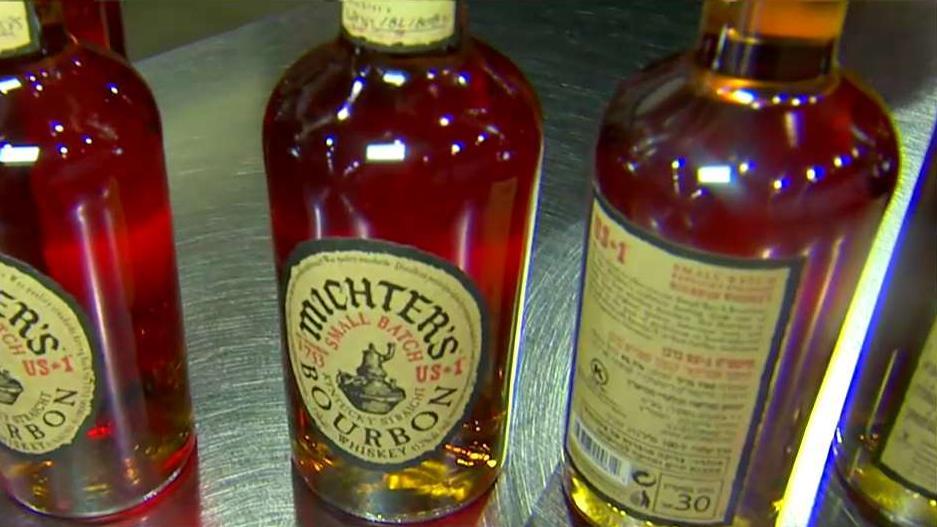Amid trade fight, US whiskey exports rise ... temporarily
LOUISVILLE, Ky. - At Kentucky Peerless Distillery in Louisville, hundreds of barrels of premium whiskey sit stacked high to the ceiling, aging and awaiting transfer to the company’s patented bottles.
A year ago, Peerless projected around 2,500 cases of this whiskey would go from the charred barrels to pallets packed for Europe.
But that was before the tariff battle.
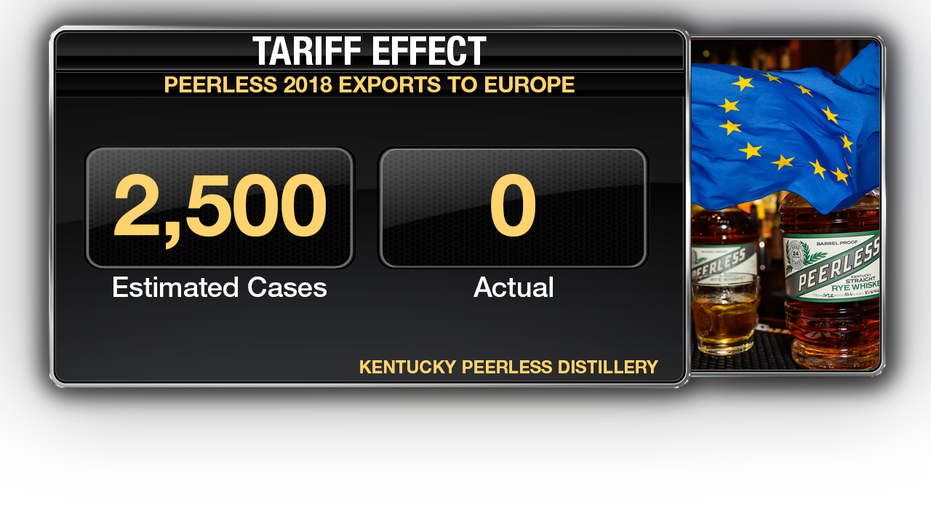
In 2018, Peerless has not sold a single case to Europe.
“The industry was expecting 25 to 30 percent growth in the next few years outside the U.S.,” says Peerless Global Strategy Director Cordell Lawrence. “We’re stubbing our toe.”
Over the past 20 years, exports of American whiskey have more than tripled, according to data from the U.S. Census Bureau. And increasingly, as whiskey upstarts proliferate, even smaller producers – not just the high-volume name brands – are trying to exploit overseas markets amid strong demand for American brown spirits.
However, in retaliation for the Trump administration’s tariffs on steel and aluminum, Europe and other governments slapped a host of duties on iconic American products, including Harley-Davidson motorcycles, Levi’s jeans, and American whiskey.
“Americana plays well internationally,” says Lawrence, “but it becomes an easy target in these situations.”
Ironically, tariffs initially helped provoke a spike in American whiskey exports during the first half of the year. From January through June, the U.S. shipped 32.9 percent more whiskey to Europe than in 2017. Since then, exports have been down more than eight percent compared to a year ago.
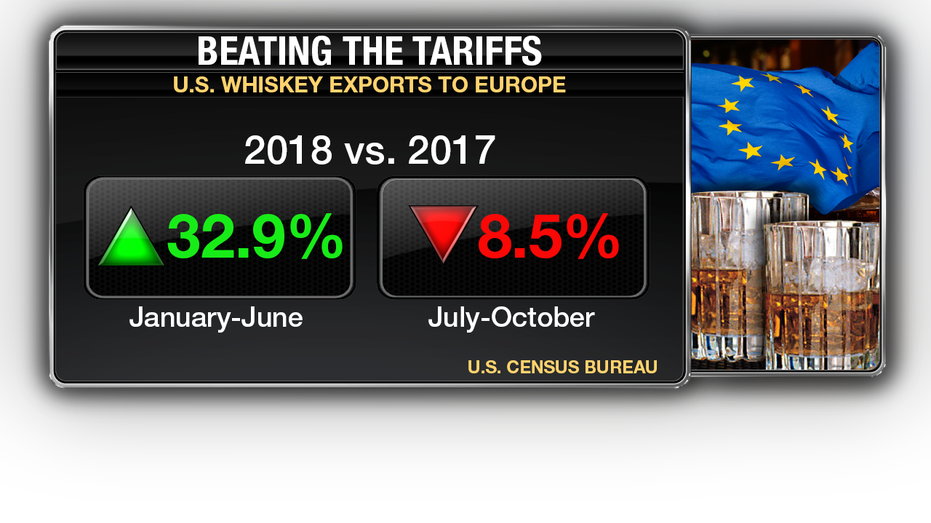
With whiskey tariffs taking effect mid-year, distillers with capacity raced to blunt the impact of oncoming tariffs by “frontloading” and warehousing whiskey in thirsty foreign markets, giving exports a boost. Once the new duties were in place, shipments began to decline.
In its Dec. 5 earnings call, distiller Brown-Forman, the maker of Jack Daniels and Woodford Reserve whiskies, said the tariffs have taken a bite out of profits. Without any further developments on trade talks with China, the company, which has so far chosen to absorb the new costs, said it assumes “tariffs will remain in place” in the short term.
“These tariffs have certainly presented challenges across many areas of the company,” said incoming CEO Lawson Whiting. He added tariffs ate into potential income growth in the “high single digits.”
The question is whether the tariffs truly remain for the short term or become a more entrenched cost that will be transferred heavily to consumers. The meeting between President Trump and Chinese President Xi Jinping in Buenos Aires earlier this month lifted hopes for a truce, and along with it, the broader U.S. stock market. But subsequent tweets from Trump threatening more tariffs sent investors running for the exits – as well as for some stiff glasses of Kentucky-made bourbon.
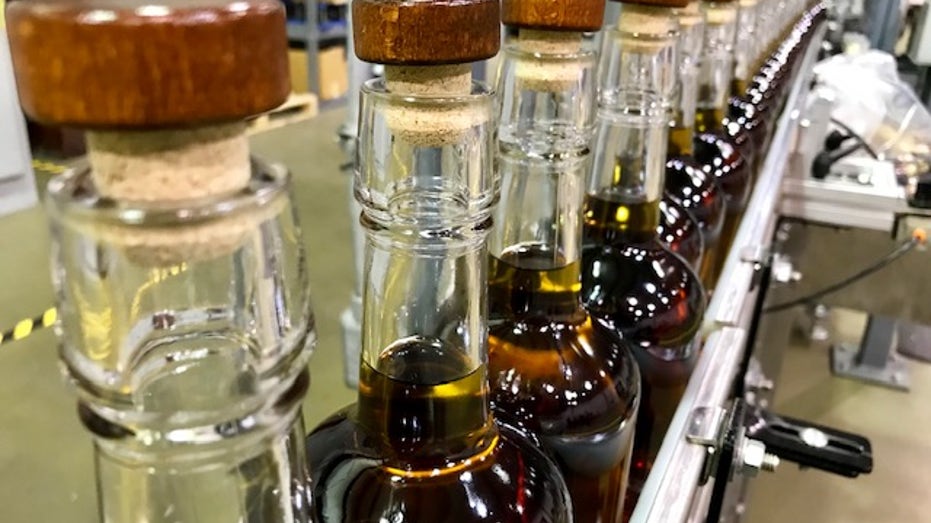
For now, though, it appears the position of distillers is similar to those of farmers until recently – grit your teeth, be patient, and hope that a resolution comes sooner rather than later.
“I kind of understand what he’s trying to accomplish,” says Peerless CEO Corky Taylor. “I believe it’s going to be worked out. I can’t be mad at Trump about it.”
To this comment, Joe Magliocco, president of another Louisville-based whiskey producer, Michter’s Distillery, added: “Businesses like stability. We all just want this to be resolved.”




















